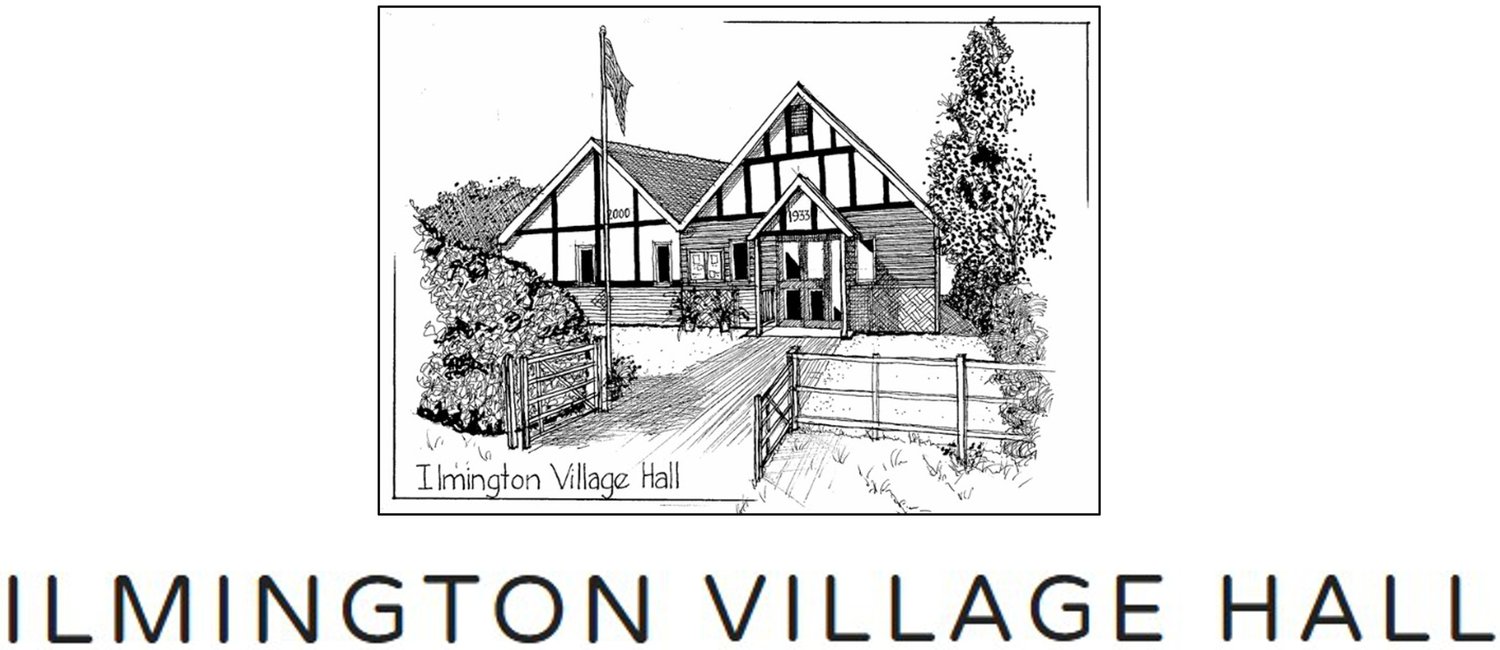Hall Management
Village Hall: how it works
Ever since Ilmington Village Hall was founded in 1933, the management and arrangements for its use have been the responsibility of what is officially called the “Council of Management” but today goes by the rather less grand title of village hall committee.
The village hall's governing document (constitution) provides for a committee of up to 12 members, 10 of whom are drawn from user groups, plus two co-opted from the village at large. The names of the current volunteer committee members can be found below, as well as on noticeboards inside and outside the hall. Ilmington Village Hall is a registered charity, so the committee members are also known as its “trustees”.
Below is a summary of work trustees undertake.
Manage the hall and its finances prudently to ensure it continues to thrive as a recreational amenity for the residents of Ilmington and near vicinity.
Attract, handle and publicise bookings; set hiring rates
Ensure the property is properly maintained, including seeking and approving tenders and overseeing works
Ensure hall is cleaned and ready for each new booking, including setting up and clearing away furniture and equipment as required by users
Apply for funding and grants, and organise fundraising events to ensure the hall’s financial viability
Comply with any legal requirements, eg concerning disability, health & safety; liaison with fire service
Ensure necessary performing rights and alcohol licences are renewed regularly
Ensure building security day-to-day and ongoing
Respond to any emergencies, as well as queries or complaints from hirers, neighbours etc
Attend meetings and keep written minutes of
decisions, and ensure the treasurer presents regular financial reports and prepares a yearly budgetConsult with the village on major projects, eg, in 2011 the trustees conducted a survey of every household in Ilmington to discover their wishes for improvements to the hall. The results, which were independently analysed at the trustees’ request by the District Council, led to the kitchen upgrade project, completed in 2012/13. Upgrading of heating/insulation is now a priority.
The role of trustees
Charity trustees are the people who serve on the governing body of a charity. They may also be known as directors, board members or committee members. They are responsible for the general control and management of the charity.
The great majority of trustees in the UK serve as volunteers, like all members of Ilmington Village Hall committee, working for the charity without pay.
All trustees have and must accept ultimate responsibility for directing the affairs of the charity and ensuring it is solvent, well-run and delivering the charitable outcomes for the benefit of the public for which it has been set up.
They must act reasonably and prudently in all matters relating for the charity and must always bear in mind that their prime concern is the charity's interests. The charity's income and property must be used reasonably and only to further the charity's aims as set out in its governing documents, also know as its constitution.
Trustees must avoid undertaking activities that might place the charity's endowment, funds, assets or reputation at undue risk.
They must act independently of the organisation that appointed them and act only in the best interests of the charity.
They must also ensure that the charity complies with charity law, and the requirements of the Charity Commission.
If the trustees act imprudently, or are otherwise in breach of the law or the governing document, they may be personally responsible for liabilities incurred by the charity.
Adapted/abridged from Charity Commission guidance. See more at: www.charitycommission.gov.uk/ publications/cc3.aspx#b2
Ilmington Village Hall is a registered charity (number 217490). There are currently 11 members of the management committee (trustees):
Bryan Clifford (Chairman)
Paul Bryan (Treasurer)
Joan Redhead (Secretary)
Richard Cooke
Carol Hawkins
Linda Haydon
Sheila Lowe
Tony Moon (Deputy chair)
Steve Prosser
Richard Sharratt (Bookings secretary)
